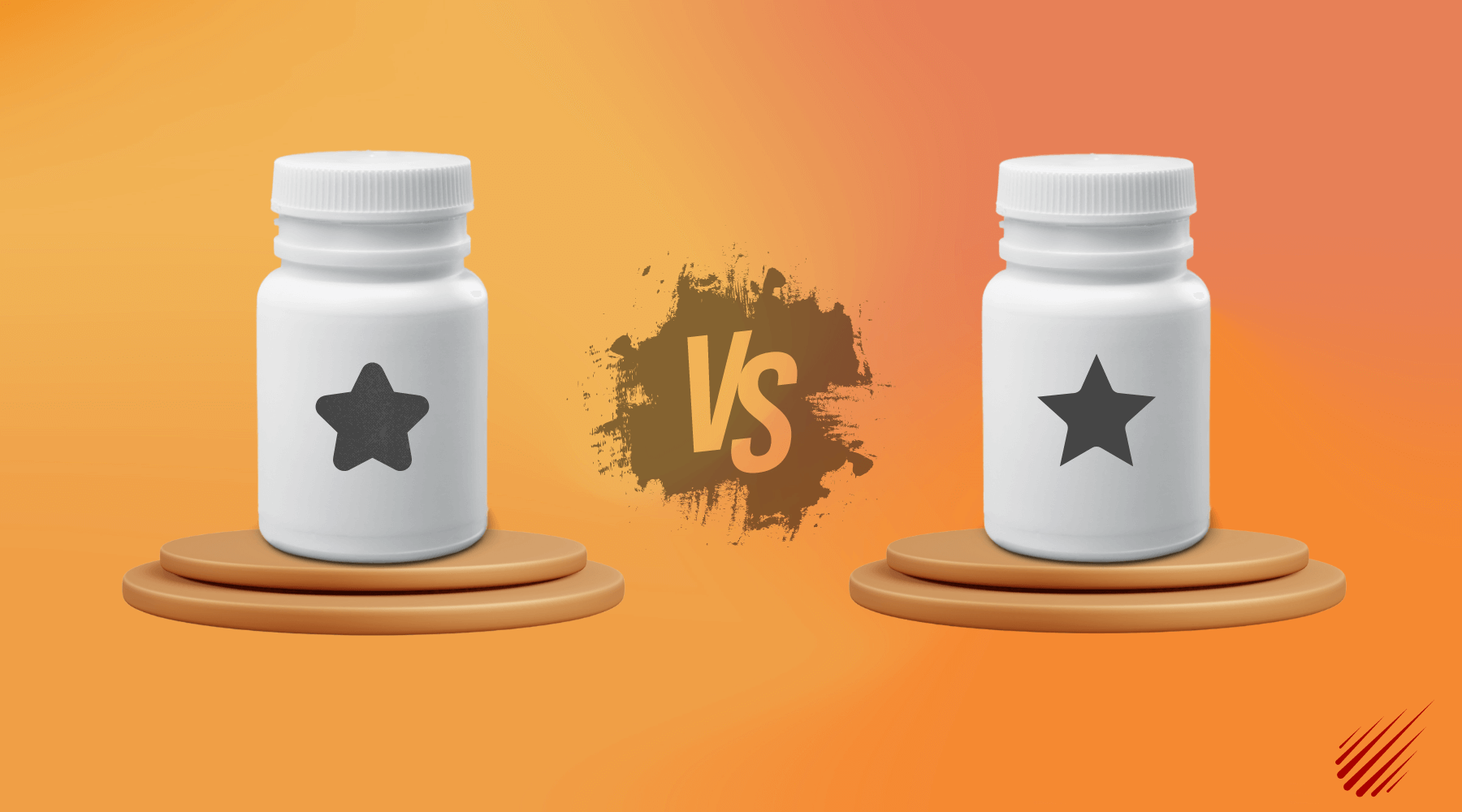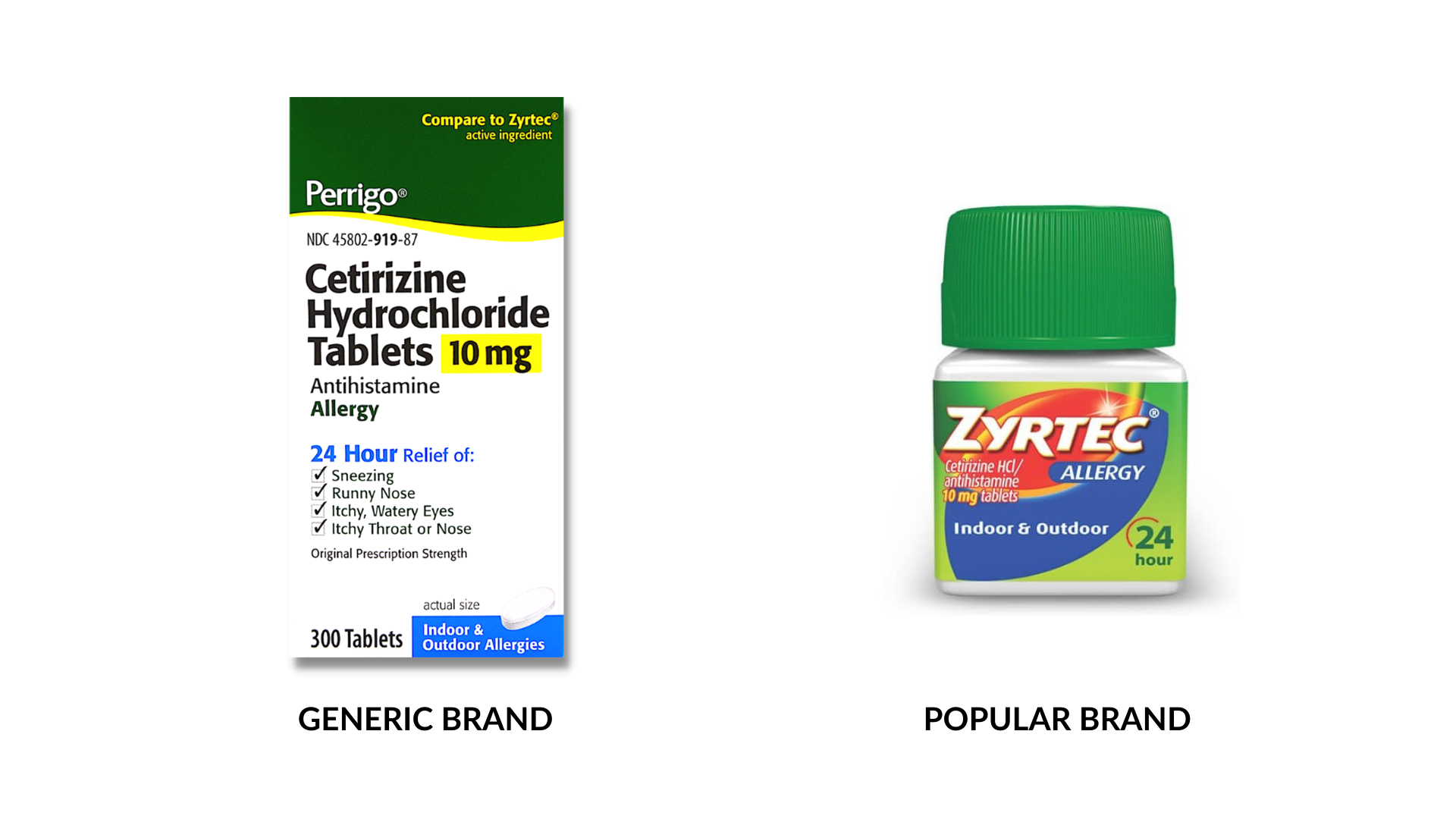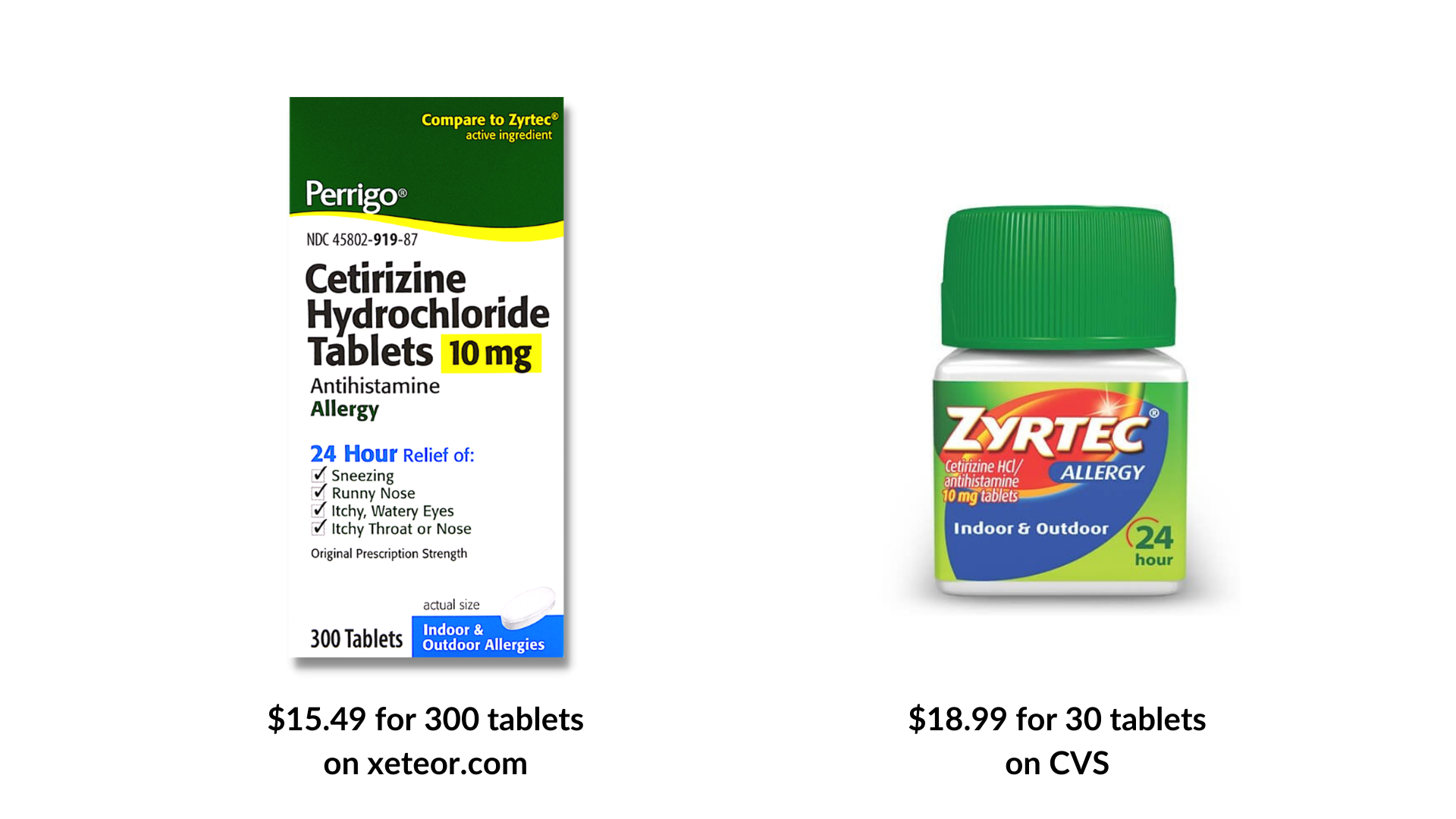
Brand vs. Generic Drugs: What's the Difference?
When you come across a generic drug, such as Perrigo Cetirizine, you might be a little skeptical. You probably haven’t seen that brand before and you’re most likely used to seeing the popular brand name drug, Zyrtec, due to its commercials, branding, and marketing. It’s okay to be skeptical, but after reading this, you won’t doubt generic drugs any longer.

When it comes to generic medicine, it’s important to remember that they have to be FDA approved as well. With that being said, the drug will go through the same rigorous inspections as the brand name drug did to make sure they are just as effective.
First let’s explore what a generic drug is. According to the U.S. Food & Drug Administration, “A generic drug works in the same way and provides the same clinical benefit as its brand-name version. This standard applies to all FDA- approved generic medicines” (“Generic Drug Facts”). Although, watch out for the inactive ingredients. They vary from brand to brand, and just like any medicine, one brand may be more effective than the other due to your body’s reaction to the drug.
In essence, there’s no reason for you to not try generic medicine. They are as effective as the brand name medicine, and it’s sold at a cheaper price!
Now, you might ask, why are generic drugs dramatically less expensive than brand name drugs? It’s because the brand name drug deals with start-up research costs, and costs related to patents and FDA approvals, whereas the generic brand doesn’t need the intensive research or patent costs.
When it comes to patents, they could last up to 20 years. The patent is applied for a few reasons:
1. To not have any competitors.
2. To pay back the cost of the research.
3. To build up its brand through marketing and advertising.
In essence, the main difference between generic drugs and brand name drugs is their names and pricing. Brand name drugs are developed and marketed by pharmaceutical companies who hold exclusive rights to produce and sell them. They invest in research, development, and marketing, which can make brand name drugs more expensive. On the other hand, generic drugs are identical in terms of active ingredients, dosage, safety, and effectiveness. They are typically produced and sold after the brand name drug's patent has expired. Generic drugs are often more affordable because they don't have the same research and marketing costs associated with brand name drugs. However, both generic and brand name drugs are required to meet the same standards for safety, quality, and effectiveness set by regulatory authorities, such as the FDA. Other companies can’t recreate that drug until the patent expires. After the patent expires, other companies can jump on the train to recreate the brand name medicine. This creates a competitive market for this new drug. Which results in lower costs on the same drug.

Now that you know that these drugs are practically interchangeable, give generic drugs a shot. We promise it’s worth your time and money.
Works Cited
Center for Drug Evaluation and Research. “Generic Drug Facts.” U.S. Food and Drug
Administration, FDA, 2018, www.fda.gov/drugs/generic-drugs/generic-drug-fact...
“General Information Concerning Patents.” United States Patent and Trademark Office - An
Agency of the Department of Commerce, 14 Mar. 2018, 02:41 PM EDT,

